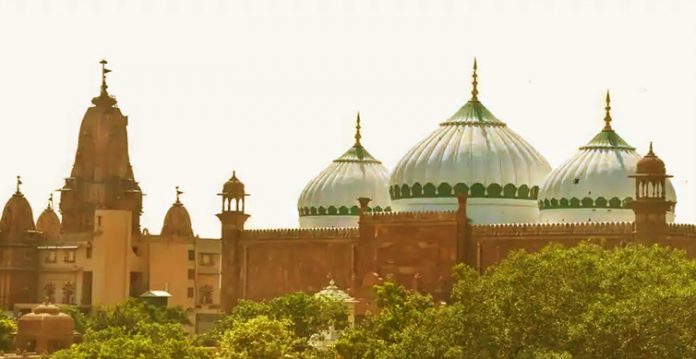A local court in Mathura on Friday admitted a plea that looks to remove a mosque near to the Krishna Janmabhoomi.
The court of district judge Sadhna Rani Thakur has set November 18 as the following date of hearing for the case.
Prior in October, a civil court in Mathura had rejected a plea looking for a request to remove the Shahi Idgah Mosque. The applicant had claimed that it was constructed over Krishna Janmabhoomi.
At the point when the senior division judge rejected their plea on September 30, they appeared in the district court on October 12 naming the request “erroneous and against facts”. Subsequent to summoning the record of the lower court, the area court conceded to the appeal on Friday.
Mathura is viewed as the birthplace of Lord Krishna.
The suit was registered in the previous month for child deity Bhagwan Shrikrishna Virajman through the “next friend” Ranjana Agnihotri and seven others. The next friend is a lawful term for an individual who represents somebody straightforwardly incapable to keep up a suit. The defendants for the case were the Uttar Pradesh Sunni Central Waqf Board, the Shahi Masjid Idgah Trust, the Shri Krishna Janambhoomi Trust, and Shri Krishna Janmasthan Seva Sansthan, Jain stated.
The mosque being referred to was constructed in the seventeenth century. As indicated by applicants, it was constructed at the birthplace of Lord Krishna, inside the 13-acres of land premises of the Katra Keshav Dev temple.
The plea expressed that if the property of the deity has been mistreated, the worshiper has got the right to sue guilty parties. It was likewise submitted to the court that the five-judge seat in the Ayodhya case has decided that a worshipper has the right to defend the property of the deity, Jain stated.
After the November 2019 Supreme Court decision in the Ram Janmabhoomi-Babri Masjid title conflict case, the commotion has been expanding to remove mosques that are neighboring prominent temples in the nation like the Krishna Janambhoomi in Mathura and the Kashi Vishwanath in Varanasi.
A five-judge Constitution seat of the Supreme Court directed by then Chief Justice of India Ranjan Gogoi had decided that the contested land in Ayodhya be given for the construction of a temple, while Muslims would get a substitute plot somewhere else in the Uttar Pradesh town.
with IANSinput


